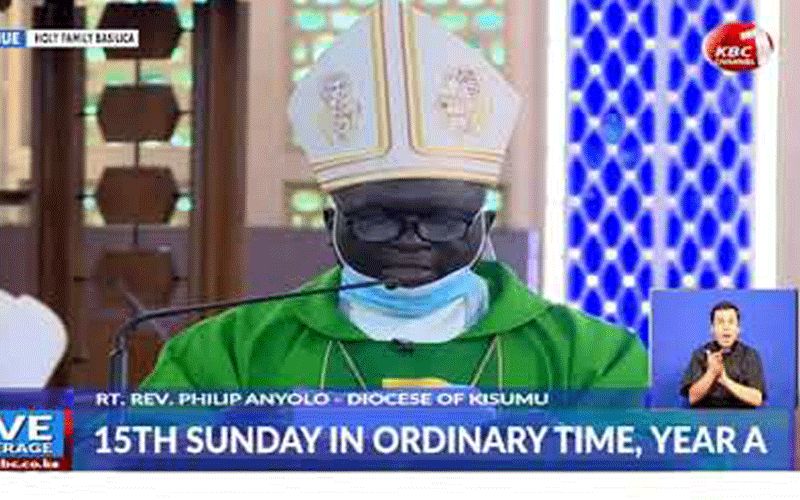Nairobi, 13 July, 2020 / 10:00 pm (ACI Africa).
After Kenya’s Government announced the “conditional” and partial easing of COVID-19 restrictions last week, Catholic Bishops in the East African nation have called on the people of God in the East African nation to take “personal and social responsibility seriously” if the country has to reopen.
“The full unlocking of the Country is dependent on everyone taking personal responsibility in containing the spread of coronavirus to a flattened curve. With this in mind, we your Shepherds, call upon each one of us to take our Presidents' call to personal and social responsibility seriously,” members of the Kenya Conference of Catholic Bishops (KCCB) say in a collective message read out at the end of a televised Mass, Sunday, July 12.
In the message, the Bishops note that the phased reopening of the country is accompanied “with anxieties and fears over the increasing number of persons infected and affected with Covid-19.”
On July 6, Kenya’s President, Uhuru Kenyatta announced a “conditional” and phased re-opening of the country, easing some of the COVID-19 restrictions including the lifting of “cessation of movement into and out of the Nairobi Metropolitan Area, Mombasa Country and Mandera County.”
“By re-opening Nairobi, Mombasa and Mandera, we are more at risk than we were when the restrictions were in place,” President Kenyatta said July 6 and called on those in Kenya to “exercise cautious optimism, and avoid reckless abandon.”








